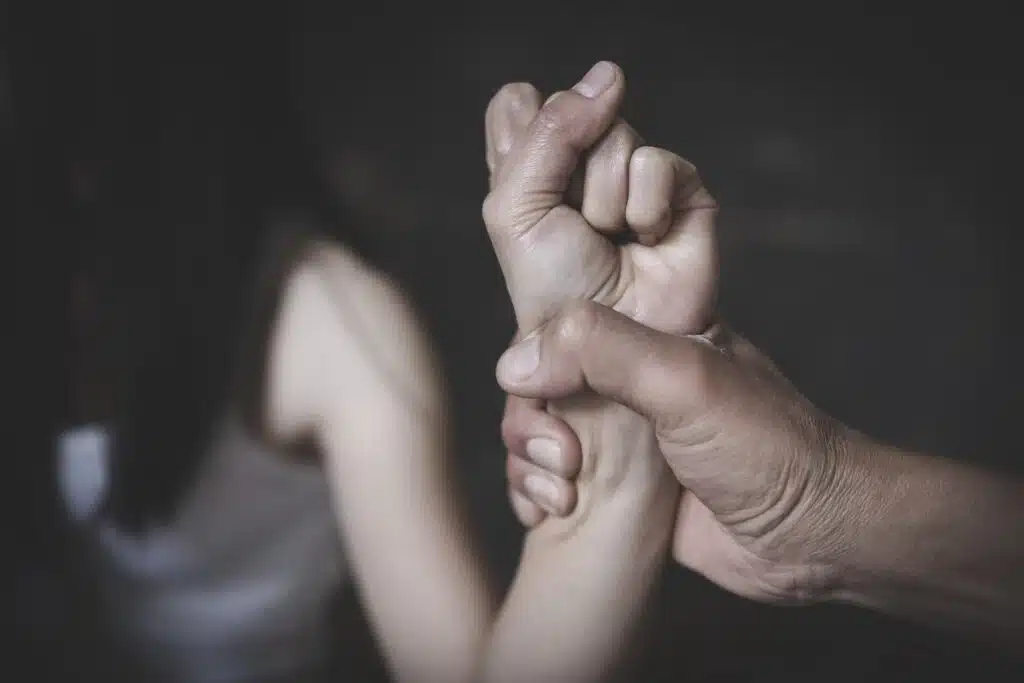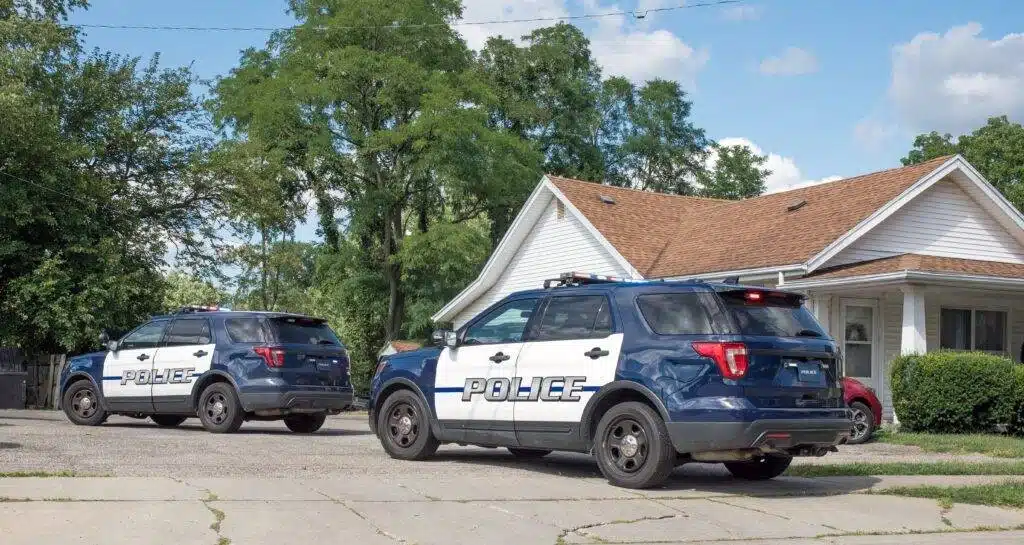How Does Colorado Define Domestic Violence?
According to Colorado Revised Statute 18-6-800.3:
(1) “Domestic violence” means an act or threatened act of violence upon a person with whom the actor is or has been involved in an intimate relationship. “Domestic violence” also includes any other crime against a person, or against property, including an animal, or any municipal ordinance violation against a person, or against property, including an animal, when used as a method of coercion, control, punishment, intimidation, or revenge directed against a person with whom the actor is or has been involved in an intimate relationship.
(2) “Intimate relationship” means a relationship between spouses, former spouses, past or present unmarried couples, or persons who are both the parents of the same child regardless of whether the persons have been married or have lived together at any time. (Colo. Rev. Stat. § 18-6-800.3)
Domestic Violence as a Sentence Enhancer
It is important to note that in Colorado, domestic violence is not an independent charge, but rather a sentencing enhancer. In simple terms, prosecutors may classify crimes like assault, harassment, or property damage as domestic violence if they find that the offender’s objective was to control, intimidate, or coerce an intimate partner.
Common examples of domestic violence assault include:
- Hitting, slapping, or punching a partner
- Choking or pushing a partner in a way that causes harm or fear
- Threatening to hurt or kill your partner
- Using or attempting to use any type of weapon to injure your partner
Colorado as a Mandatory Arrest State
We do want to note that Colorado is a mandatory arrest state when it comes to domestic violence cases. If law enforcement arrives on the scene and suspects that an act of domestic violence has occurred, they are required to make an arrest.
Colorado treats domestic violence as a serious public safety issue. Therefore, the prosecutor ultimately has the power to decide whether to uphold or drop domestic violence charges, not the victim. In other words, even if the victim decides to drop the charges, the prosecutor can still move forward.
Domestic Violence and Child Custody: What You Need to Know
Some of the most important aspects of child custody cases involving domestic violence include the following. Please note that this is not an exhaustive list.
Safety of the Child in Domestic Violence Situations
When domestic violence does occur, the Colorado court system always seeks to act in the best interests of the children involved. For this reason, the most common decision in the court is to give child custody to the parent who has NOT been accused of domestic violence. This is especially true in situations where child abuse has been implicated.
Legal Custody vs. Physical Custody: What’s the Difference?
In Colorado, legal custody means the right to the care, custody, and control of a child and the duty to provide food, clothing, shelter, ordinary medical care, education, and discipline for a child and, in an emergency, to authorize surgery or other extraordinary care. “Legal custody” may be taken from a parent only by court action. (Colo. Rev. Stat. § 19-1-103)
On the other hand, physical custody refers to the actual physical care and supervision of the child, determining where they live and who oversees their day-to-day activities (Colo. Rev. Stat. § 14-13-102).
Legal and Physical Custody: Why Do They Matter in Court Cases?
Both legal and physical custody are considered when establishing custody arrangements. As explained above, the court assigns decision-making authority and parenting responsibilities based on the best interests of the child (Colo. Rev. Stat. § 14-10-124).
For example, one parent may have joint legal custody (sharing decision-making responsibilities) but not physical custody, which limits his or her time with the child.
The distinction between these two types of custody is crucial in domestic violence and contested custody cases, as it dictates both the child’s day-to-day experiences and his or her long-term future.
It is important to note that parents with a record of domestic violence will likely struggle to gain legal or physical custody, as this history does not bode well for the child’s safety. However, if the defendant can convincingly demonstrate changes in his or her behavior, such as rehabilitation, completion of anger management programs, therapy, or other corrective measures, limited or supervised visitation may be on the table.
In some cases, courts may allow for joint legal custody, which means that the parent may still have decision-making authority. This is much more common in cases where the violence was not directed toward the child or is no longer considered a threat.
If you are not sure where to begin, a qualified defense attorney can help you navigate these complex cases.
What Does the Court Take into Account when Determining Custody?
When deciding on custody, the court takes many factors into account. Some of the most common include:
- Violence or abuse. Facing domestic violence charges, whether physical or emotional, can lead to loss of custody or supervised visitation.
- Emotional neglect. If the court finds that a parent’s behavior is detrimental to the child’s emotional well-being, custody may be restricted.
- Stable environment. A parent who provides a safe and stable home is more likely to obtain custody. Remember that the child’s welfare is paramount.
- Rehabilitation efforts. Attending counseling, taking an anger management course, or demonstrating positive behavior can improve your chances of regaining custody.
Regardless of whether you are the victim of domestic violence or you are facing domestic violence charges, custody issues are overwhelming and emotionally charged. At Mastro, Barnes & Stazzone, P.C. (MBS Law), we believe that seeking legal guidance is of the utmost importance, especially if there are children involved. An experienced legal team can clear a path forward for you and your children.
If you or a loved one are facing domestic violence charges in the Denver area, MBS Law can help.
Visitation in Child Custody Cases
During child custody cases, the court decides how much time each parent gets to spend with their child. Typically, when one parent is granted primary custody, the judge will grant some measure of visitation time to the noncustodial parent. If the court believes that time with a given parent will negatively affect the child’s emotional and/or physical health, they can restrict visitation or bar it altogether.
Conditions on visitation may include:
- Supervised visitation
- Limited contact between the parents
- A safe setting for the exchange of the child
- Barring overnight visits
- Barring alcohol use in the 24 hours prior to visitation
In Colorado, the state does take the child’s preferences into consideration. However, this is only true if the child can express a “reasoned and independent” viewpoint. There is no set age for this rule; instead, it is up to the judge to determine whether the child is old enough for their opinion to be taken into account.
Child Custody in a Domestic Violence Case FAQs
A common question we get asked is: can I get custody with domestic violence charges on my record?
While this is a possibility, it can be quite challenging. If you do find yourself looking to regain custody after multiple domestic violence charges, an experienced domestic violence defense attorney is your best bet at success. Courts may consider evidence of rehabilitation, such as the successful completion of therapy or anger management, and the absence of ongoing violence, as indicative of your deservedness for custody.
Visitation rights for the abusive parent are frequently limited or tightly supervised. In some cases, protection orders are involved. Charges of domestic abuse may also impair a parent’s capacity for decision-making when it comes to their child’s life.
Supervised visitation means that a person (a neutral third party, not the other parent) supervises the time a parent spends with his or her child. This is required if the court comes to the conclusion that unsupervised contact represents a risk to the child’s emotional or physical well-being.
You might be wondering: can a father or mother lose custody for domestic violence? The short answer is yes – in serious cases where the court finds that the parent’s behavior poses a continued danger to the child, contact may be denied altogether. This includes physical custody and visitation rights.
Courts require evidence such as police reports, medical records or witness testimony. The standard is usually a “preponderance of the evidence,” meaning it must be more likely to be true than not.
MBS Law: Denver Domestic Violence Lawyer for Your Case
There’s no doubt about it – child custody cases are complicated, stressful, and upsetting. The main reassurance is that the court will prioritize your child’s safety throughout the process.
Colorado law takes domestic violence very seriously; as such, it is a major consideration in child custody decisions, often leading to restricted or supervised visitation for the abusive parent. Regardless of gender, individuals convicted of abuse towards a partner or child will face custody consequences. If you find yourself in this situation, it is essential to seek legal advice to both protect your rights and remain an integral part of your child’s future.
When you are ready, MBS Law is here to support you. Contact us today, and we will get started with a FREE consultation to discuss your options.













